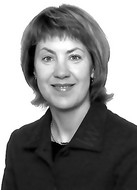Physical Education specialist’s emotional wellbeing as professional success factor
Фотографии:
ˑ:
Dr.Hab., Professor L. Kardeliene1
PhD, Associate Professor A. Sharkauskiene1
1Klaipeda University, Faculty of Health Sciences, Klaipeda, Lithuania
The national educational system gives a growing priority to the physical education specialist’s emotional wellbeing viewed as a professional success factor. The situation is complicated by the low status of the school physical education lessons and instructors. The physical education specialists (n=324) from the general education school system of Lithuania were randomly sampled for the study purposes. The emotional wellbeing in the sample was rated on a 12-point scale of the key emotional stressors. The study data provided the means to compute individual stress scores and split up the sample into the following two groups: one group exposed to big and frequent stresses; and the other group exposed to occasional stresses only. The study data and analyses found about one of three instructors facing job-specific stressors; and one of four instructors reporting exposure to stress due to the excessive/ specific management requirements. The study also found a correlation of the emotional wellbeing rates with the educational service records.
Keywords: teacher of Physical Education, emotional wellbeing, educational service.
References
- Al-Rawahi N., Al-Yarabi A. The relationship between attitudes toward participation in physical activities and motives for choosing teaching physical education as a career. International Journal of Instruction, 2013, no. 6, pp. 177–192. Available at: http://www.e-iji.net/dosyalar / iji_2013_2_12.pdf
- Ivaniushina V. A, Aleksandrov D. A. Sushchestvuyet li differentsiatsiya uchiteley v rossiyskikh shkolakh? [Is there a differentiation of teachers in Russian schools]. Sociologicheskiye issledovaniya, 2016, no 9, 2016. pp. 59–65 Available at: http://socis.isras.ru / files / File / 2016 / 2016_9/59–65_Ivanyushina.pdf
- Kardelienė L. Purposefulness of physical education teachers as a determinant of their pupils’ objective position in physical education activities in postmodern society. Pedagogika, 2016, no. 4, pp. 206–215. Available at: http://www.pedagogika.leu.lt/ index.php / Pedagogika / article / download /449/290
- Shafranov-Kutsev G. F. Mesto uchitel'stva v stratifikatsionnoy strukture sovremennogo rossiyskogo obshchestva [The place of teaching in the stratification structure of modern Russian society]. Sociologicheskiye issledovaniya, 2016, no 9, pp. 65–72 Available at: http://socis.isras.ru/files/File/2016/2016_9/65–72_Shafranov_Kutsev.pdf
- Sheregi F. E. Pedagogi obshcheobrazovatelnykh organizatsiy: trud ili povinnost'? [Teachers of general education organizations: work or service?]. Sociologicheskiye issledovaniya, 2016, no 1, pp. 108–116. Available at: http://socis.isras.ru/files/File/2016/2016_1/108_116_Sheregi.pdf
- Stock C., Kramer A. Psychosoziale Belastung und psychosomatische Beschwerden von Studierenden. Gesundheitsfordende Hochschulen. Konzepte, Strategien und Praxisbeispiele (Hrsg.) U. Sontag, S. Graser, C. Stock, A. Kramer. Weinheim und Munchen: Juventa Verlag, 2000, pp. 127–138.
- Stočkus A. Kūno kultūros mokytojų profesinio perdegimo prevencija ir redukavimas: ugdomojo projekto rezultatai [Prevention and reduction of physical education teachers’ burnout: results of an educational Project]. Tiltai. 2014, no 1. pp. 151–168 Available at: http://journals.ku.lt/index.php/tiltai/article/download/784/pdf.
- Thorburn M. It was the best of times, it was the ...’: subject aims and professional identity from the perspective of one veteran male teacher of physical education in Scotland. Teachers and Teaching: theory and practice, 2014, no. 4, pp. 440-452 Available at: http://dx.doi.org/10.1080/13540602.2014.881641.




 Журнал "THEORY AND PRACTICE
Журнал "THEORY AND PRACTICE